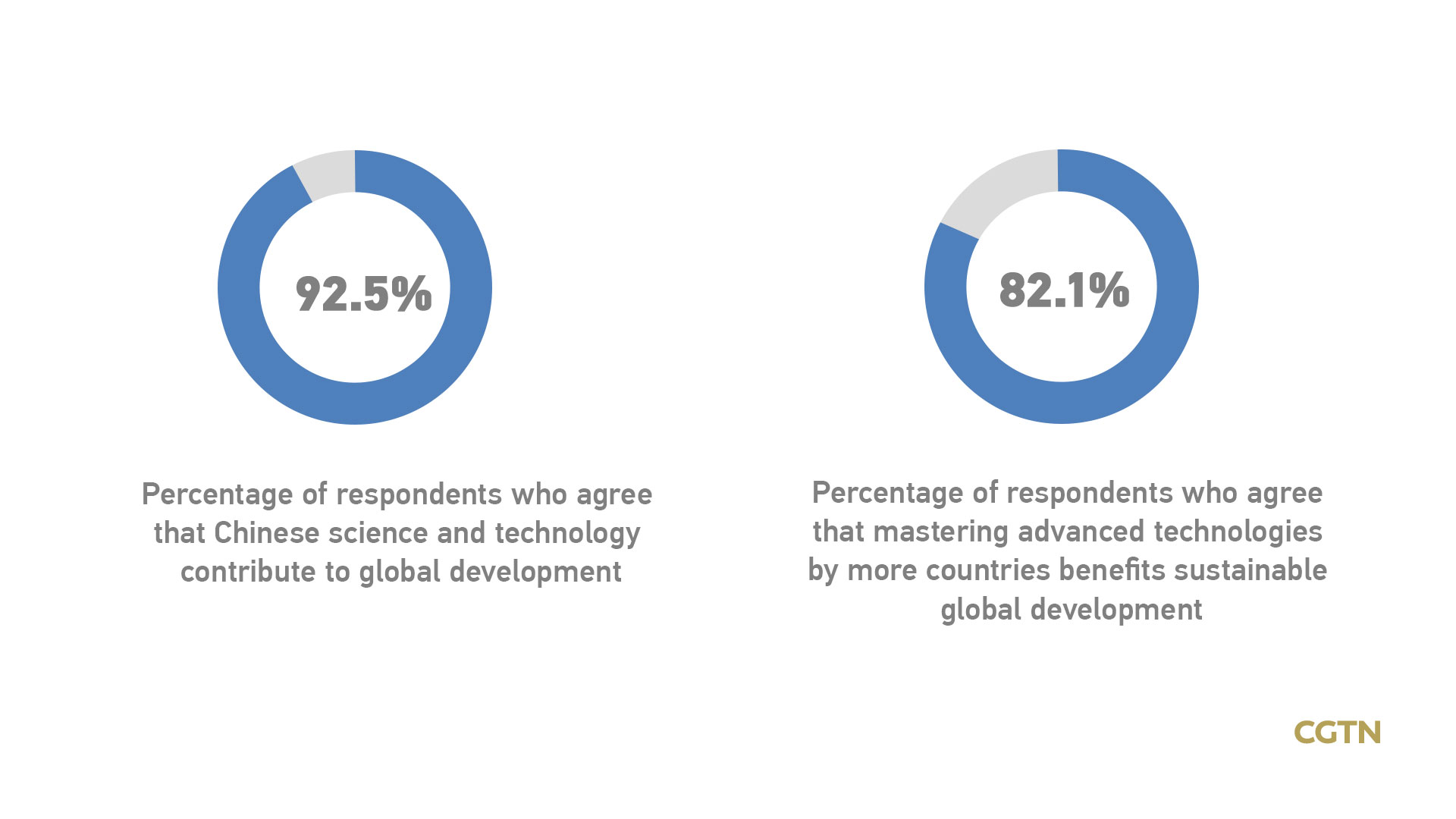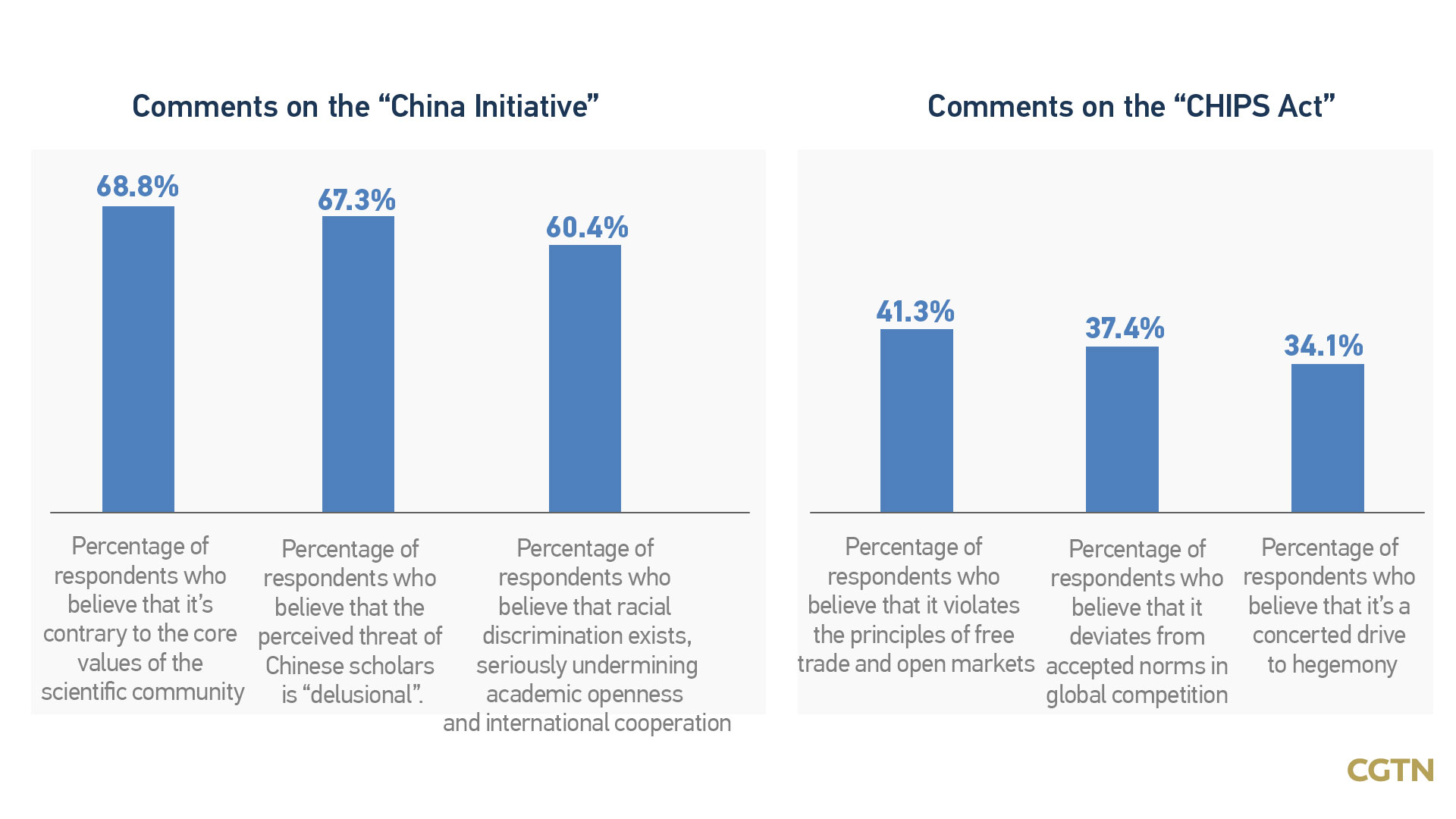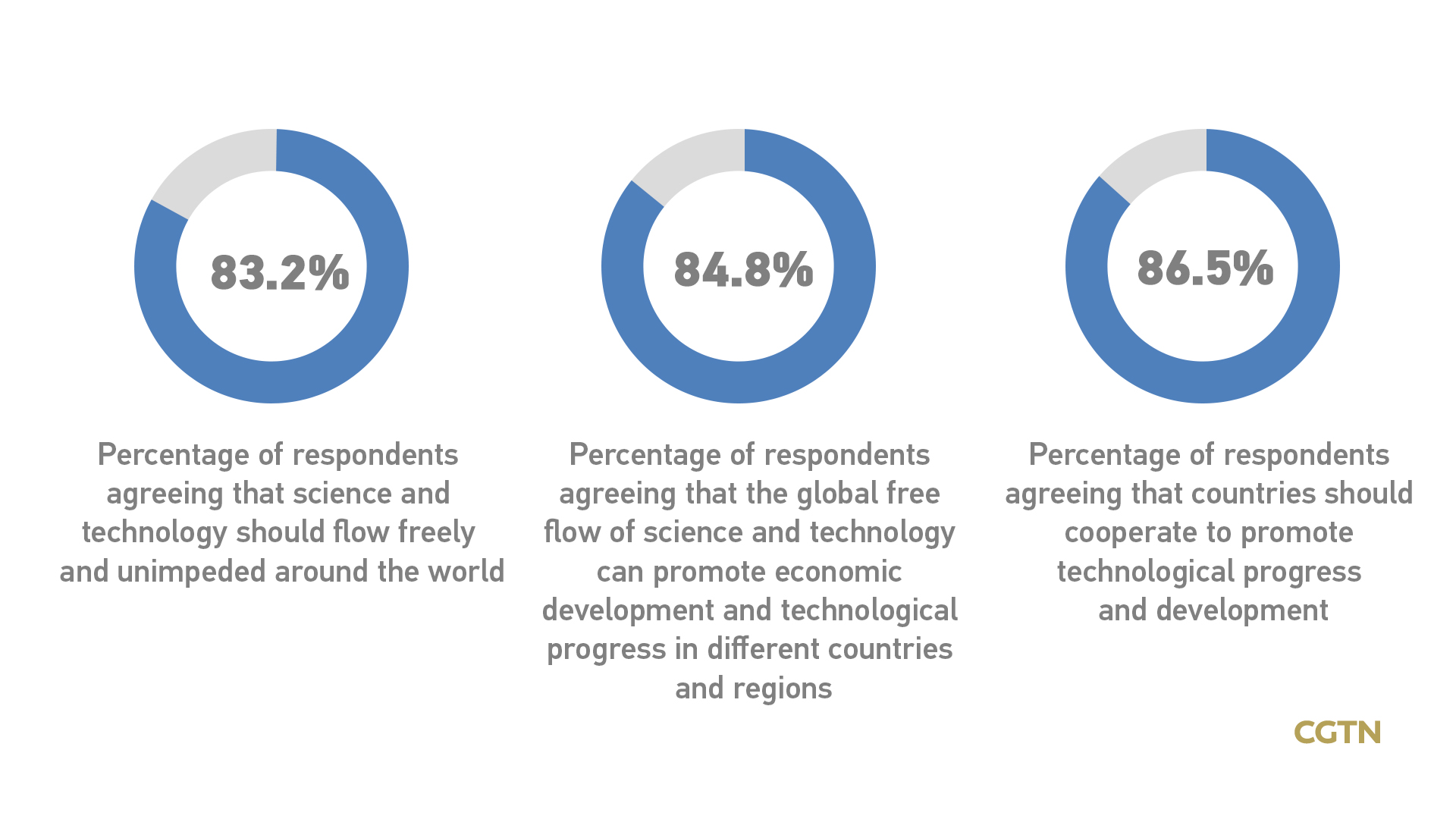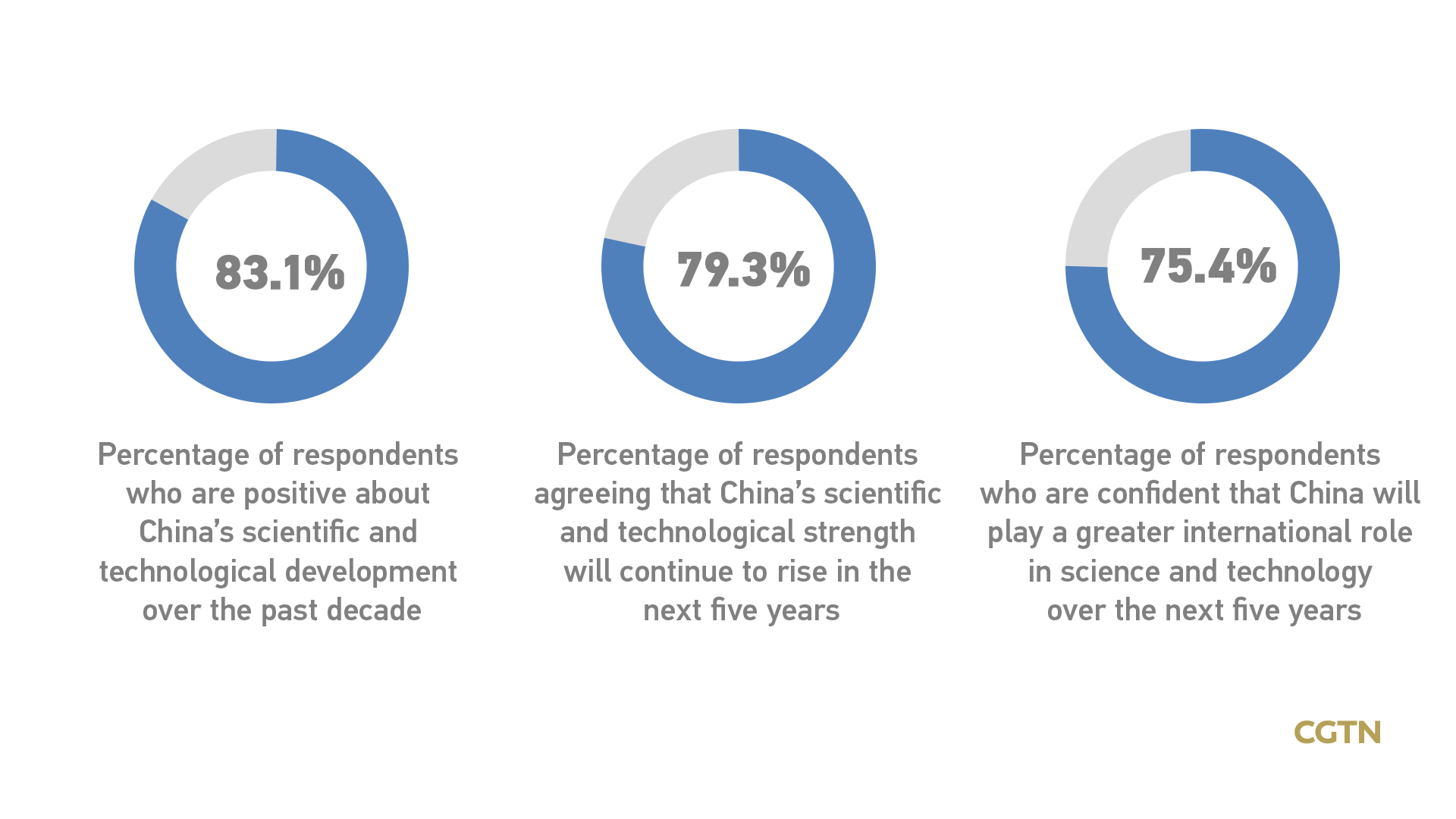A global poll launched by CGTN Think Tank and the Chinese Institute of Public Opinion of Renmin University of China shows that China's contribution to global science and technology is highly recognized by the world.
A total of 3,500 people coming from 22 countries were polled, of which 92.5 percent of respondents agreed that Chinese science and technology contributes to global development.
82.1 percent of the respondents expressed opposition to the technological bullying and technology blockade adopted by the United States, believing that it is beneficial for sustainable global development with more countries mastering advanced technology.

Graphic by CGTN's Li Wenyi, Du Chenxin
Graphic by CGTN's Li Wenyi, Du Chenxin
The survey was conducted under the condition that the U.S. has taken a series of technology blockade on China in 2022.
With the passing of the America COMPETES Act of 2022, CHIPS and Science Act and a series of regulatory measures for integrated circuit sector, many Chinese high-tech enterprises and research and development institutions were added to the U.S. entity list, and China's access to high-tech chips was limited.
As we know, once a company is added to the entity list, its U.S. suppliers must seek a special license to ship even low-tech items to it.
Chinese Foreign Ministry spokesperson Zhao Lijian voiced strong opposition to the America COMPETES Act bill, saying that it is "filled with Cold War mentality" and an act to slander China's path of development and its domestic and foreign policies at a press conference held in February.
In the face of China's scientific and technological progress, the U.S. spreads the so-called "China threat" in the name of national security, politicizes sci-tech issues and advocates strategic competition against China.
The three-year-old "China Initiative," launched under the pretext of countering economic espionage and intellectual property theft, ended with controversy in February this year.
In response to this initiative, 68.8 percent of respondents believed that it's contrary to the core values of the scientific community, over 60 percent believed that there exists racial discrimination, which will seriously undermining academic openness and international cooperation.
While 67.3 percent thinks the perceived threat of Chinese scholars is "delusional." Only 16.1 percent of respondents believed it helped safeguard national security.

Graphic by CGTN's Li Wenyi, Du Chenxin
Graphic by CGTN's Li Wenyi, Du Chenxin
As to the CHIPS and Science Act the country promoted in 2022, the percentage of respondents who believe that it violates the principles of free trade and open markets, it deviates from accepted norms in global competition and it's a concerted drive to hegemony ranked top three.
China is becoming a force to be reckoned with in the world of technological innovation. In the survey, over 80 of global respondents agreed that science and technology should flow freely and unimpeded around the world, thus promoting economic development and technological progress.
In the meanwhile, more than 86 percent of respondents agreed that countries should cooperate to promote technological progress and development.

Graphic by CGTN's Du Chenxin
Graphic by CGTN's Du Chenxin
A CGTN survey to global youths in October showed that 83.1 percent think China made tremendous progress in technology and science. The country's achievements in artificial intelligence, 5G, high-speed railway and space station left deep impression on the respondents.
READ MORE: CGTN poll: Global youths recognize China's development approach
The survey also showed that 79.3 percent of respondents agree that China's scientific and technological strength will continue to rise in the next five years, and 75.4 percent hold that China will play a greater international role in science and technology over the next five years.

Graphic by CGTN's Du Chenxin
Graphic by CGTN's Du Chenxin
China indeed has achieved fruitful results in scientific and technological innovation in the past years, some of which bringing benefits to people around the world.
China's Juncao technology, literally meaning fungi and grass, which contributed to the country's poverty reduction, has helped 106 countries and regions around the world. Chinese experts have localized and simplified the technology so that people can learn it and apply it, so to produce functional food, feed, fertilizer, biomass energy and biological materials.
The country's rail transit technology and equipment have spread to Europe, Asia, Africa and Latin America, benefiting local people's livelihood.
With the Chang'e probes flying to the moon, the Zhurong rover probing Mars, the Xihe satellite chasing the sun and the China Space Station's traveling among the stars, China has deepened understanding of the universe. The country has long called for cooperation in outer space on the basis of equality, mutual benefit, peaceful utilization and inclusive development.
The country will work with other countries including developing nations to help people benefit from scientific prosperity and development, Chinese President Xi Jinping said on November 21 in a congratulatory letter to the 16th General Conference and the 30th General Meeting of the World Academy of Sciences for the advancement of science in developing countries.
(Cover image by CFP)